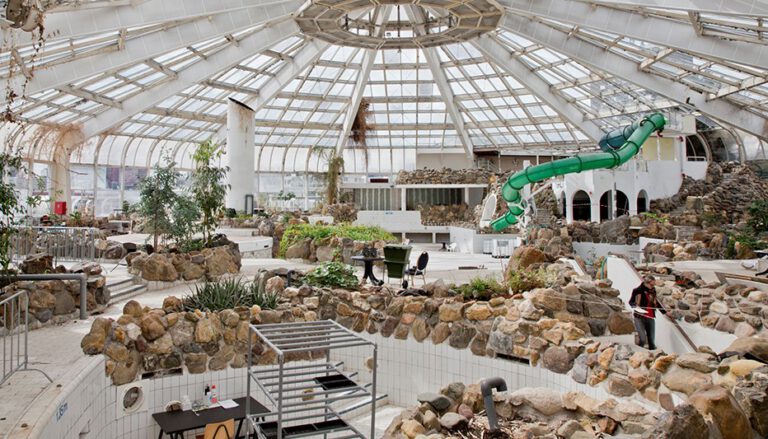
Rotterdam is known for its out-of-the-box thinking. I mean, just look at the city! A market hall that looks like a giant marshmallow? Funky yellow cube houses that people can actually live in?
A marvellous place to visit, Rotterdam is a breeding ground for countless mind-blowing initiatives and innovative projects. The city with the largest port in Europe is all too aware of the looming threat of climate change — and is ready to tackle it head on.
Be it by rethinking waste or rethinking the whole economy, here are five things that Rotterdam-based initiatives are doing to create a better world for everyone.
Taking farming to the next level
The Dutch are quite the farmers but you may be surprised to find out that it’s not all greenhouses and large farm fields. With more and more people moving into cities and living in tight spaces, the Dutch realize that there is a need for something a bit more compact.
DakAkker (meaning roof field in English) is one of Europe’s largest open-air rooftop farms. Located on the top of the Schieblock office building, it offers the space to experiment with different manners of growing vegetables and fruits on rooftops. Besides that, they also have a botanical garden and multiple beehives!
Next to being stellar farmers, the Dutch are also great at being the first to come up with awesome things before the rest of the world catches up. The Floating Farm is in this case no exception. Active since May 2019, it is the first floating farm in the world! Its goal is to produce healthy food as close to the consumer as possible, with animal welfare being their top priority.
Cleaning up the plastic soup
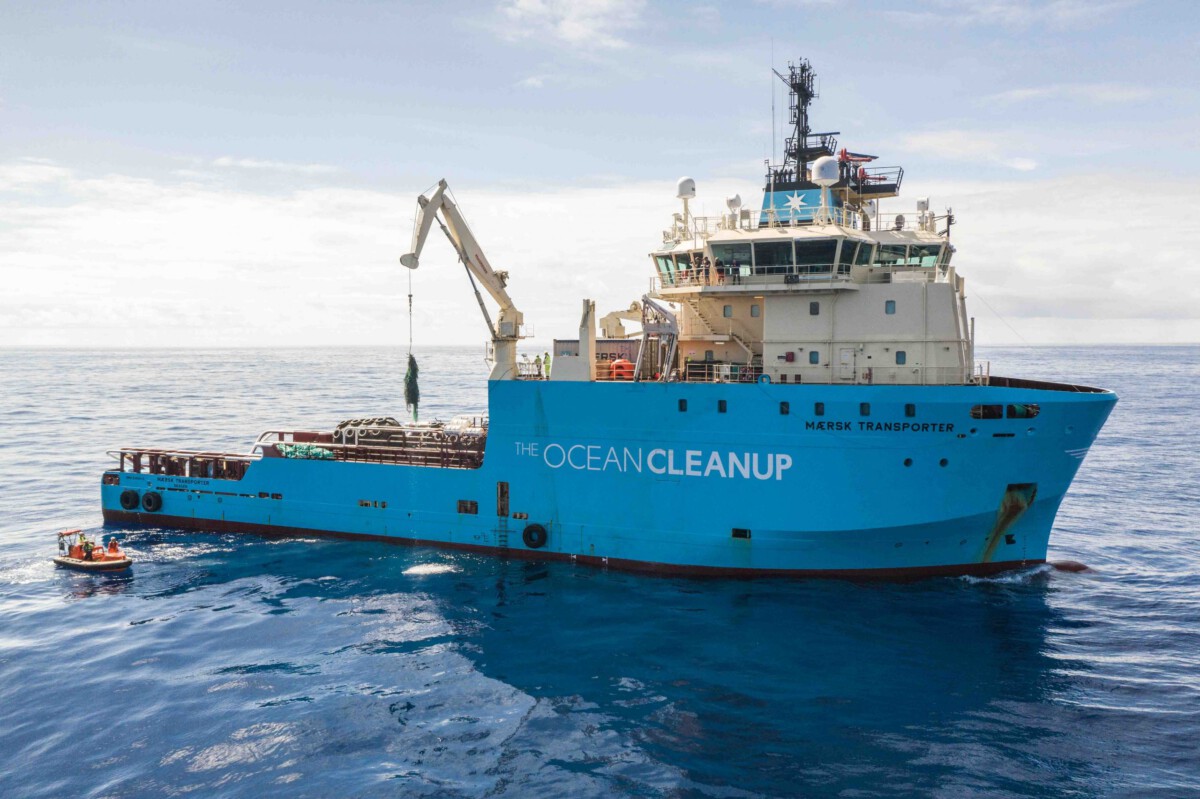
The mission of the Ocean Cleanup is to rid our oceans of plastics — an idea which was born when the then 16-year-old CEO Boyan Slat went scuba diving in Greece. Instead of marvelling at beautiful underwater creatures, he was disappointed to see nothing but a bunch of plastic bags.
Unlike most of us who go and think — “What can I do about this?” — but then never actually do anything about it; Boyan went and started the “largest cleanup in history”. Coincidentally, he picked no other place than Rotterdam as a headquarters for this ambitious project.
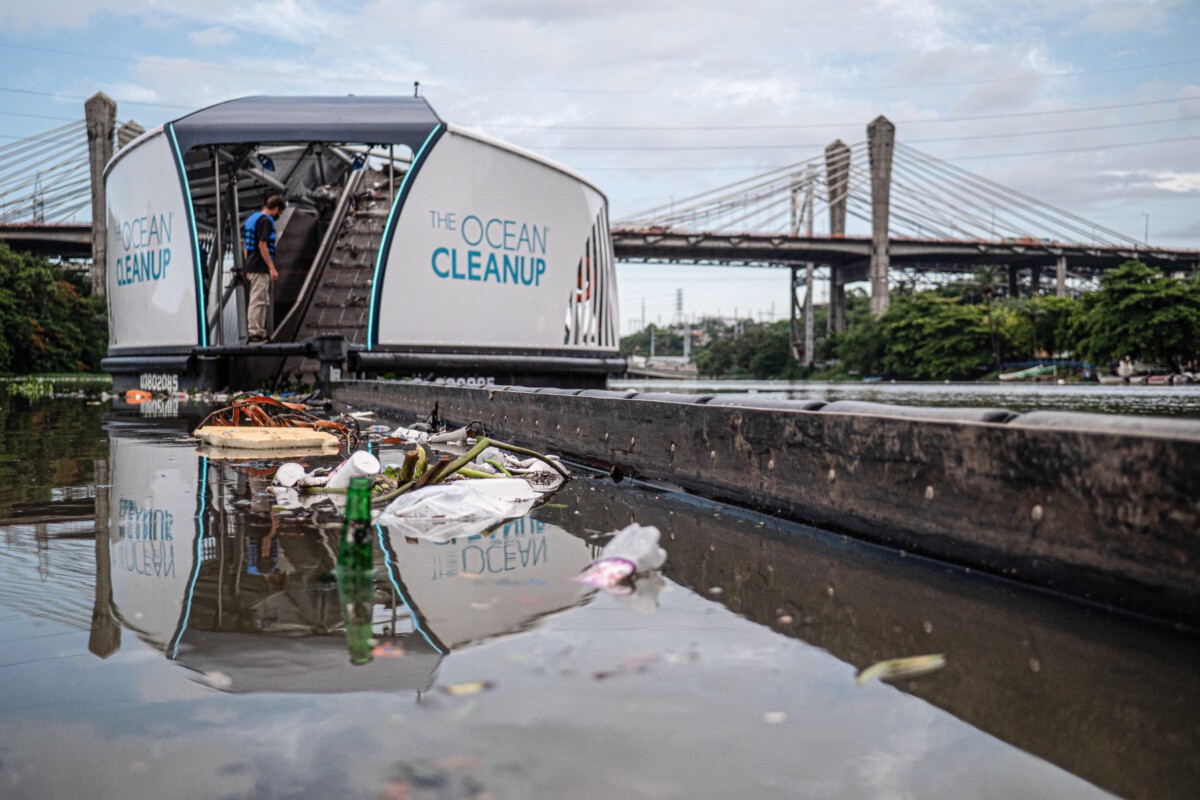
Ocean Cleanup has two goals — clean up pollution which has already accumulated in the oceans, and prevent plastics from entering the oceans in the first place by intercepting the most polluting rivers. The technology they use for this is conveniently called the Interceptor, and it works by extracting debris from the water and moving it into in-built dumpsters.
Using our waste to create new products
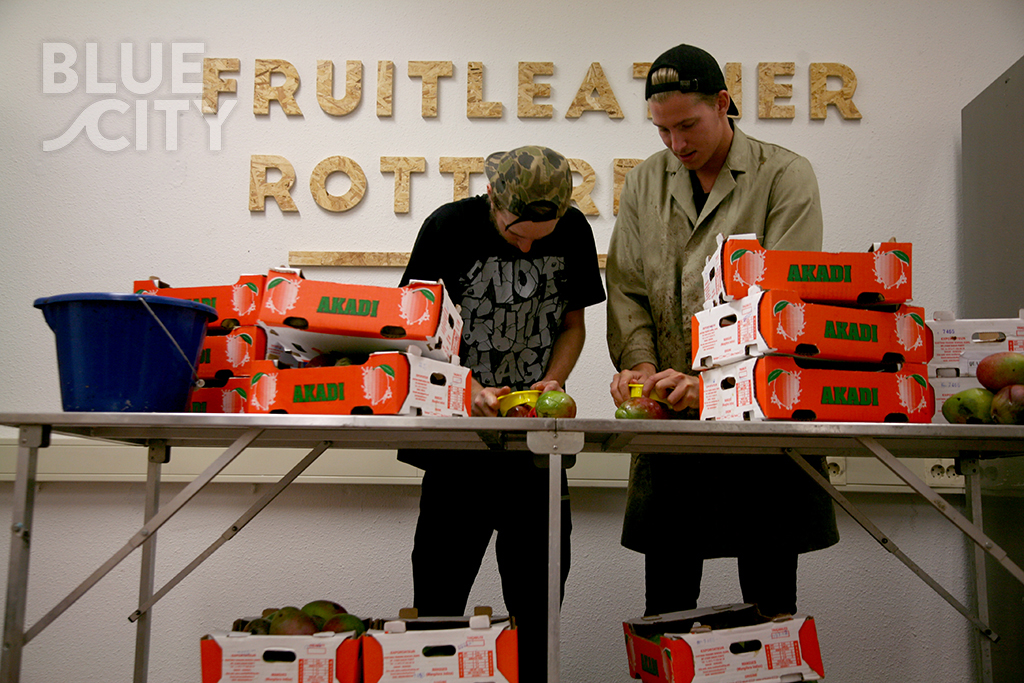
Your dream of owning a pair of fruit-based sneakers (doesn’t everyone dream this? 😉 ) may come true sooner rather than later, thanks to Fruitleather. Over recent years, the company has been experimenting with turning left-over fruits into leather-like material.
It currently focuses on mango peels, and aims to create fruit leather that can be made into footwear and fashion accessories, among other things. In line with the principles of circular economy, the designers and founders of Fruitleather, Koen Meerkerk and Hugo de Boon, see fruit waste not as a residue, but as a valuable resource.
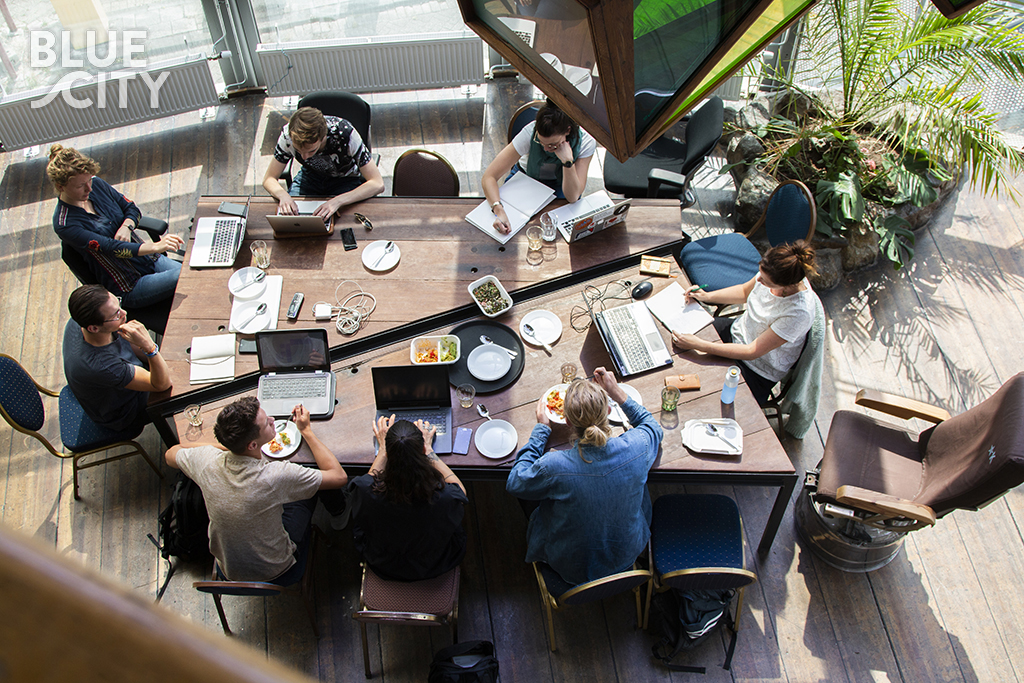
If a pair of sneakers made of fruits was never your dream (I honestly don’t know what to tell you if that’s the case…), perhaps you’ll find these two initiatives will wake you up 😉
Did you know that the Dutchies drink about 18 billion cups of coffee per year? Now imagine if we put all the used coffee grounds from these coffee cups on one giant pile. It would probably be quite a pile, huh? Luckily for us, used coffee grounds are now no longer just a waste of space.
Rotterzwam uses coffee grounds to grow oyster mushrooms on them. If that’s your thing, they have developed the so-called ‘rotterzwam growkit’ — a kit to help you convert your own coffee waste into mushrooms. You can put one of those on your kitchen counter and — voilà — here comes the first part of your mini-kitchen-farm.
If you’re not really a mushroom person, but still don’t want your coffee waste to go to waste, then fear not — there is also Coffee Based. They are closing the loop for coffee by turning coffee grounds into biobased products such as notebooks, plant pots and coffee cups.
A good idea always attracts other good ideas, so it is no coincidence that these three companies also share their home base. Where is that, you wonder? In a place where waste is seen as a treasure and not as trash.![]()
Closing the loop: a world where waste doesn’t exist
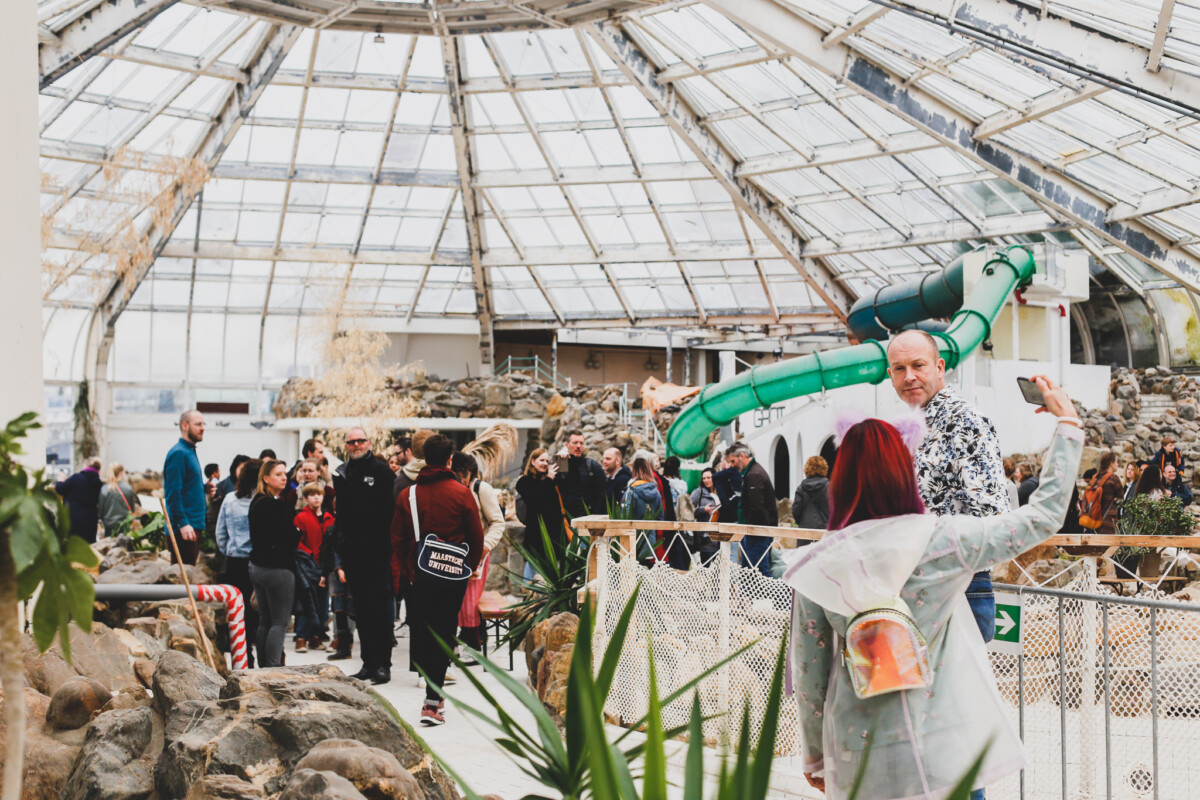
Unlike the conventional notion of “take 👉 use 👉 throw away,” a circular economy is based on the idea of “closing the loop”. This basically means taking products that no longer serve their original purpose, transforming them into something new and valuable, and thereby preventing them from ever entering the landfill.
This is the key principle behind the work of BlueCity — Rotterdam’s pool of opportunities (literally). In an effort to give new life to things that no longer serve their original purpose, the company based itself in the former Tropicana swimming pool.
A city within a city, a hub for circular economy pioneers, and a place where waste does not exist, BlueCity is all about collaboration and helping local entrepreneurs turn their ideas into action. Its ultimate vision is to disrupt the status quo, and show people that a circular economy is possible and feasible.
Sparking our imagination of a better world
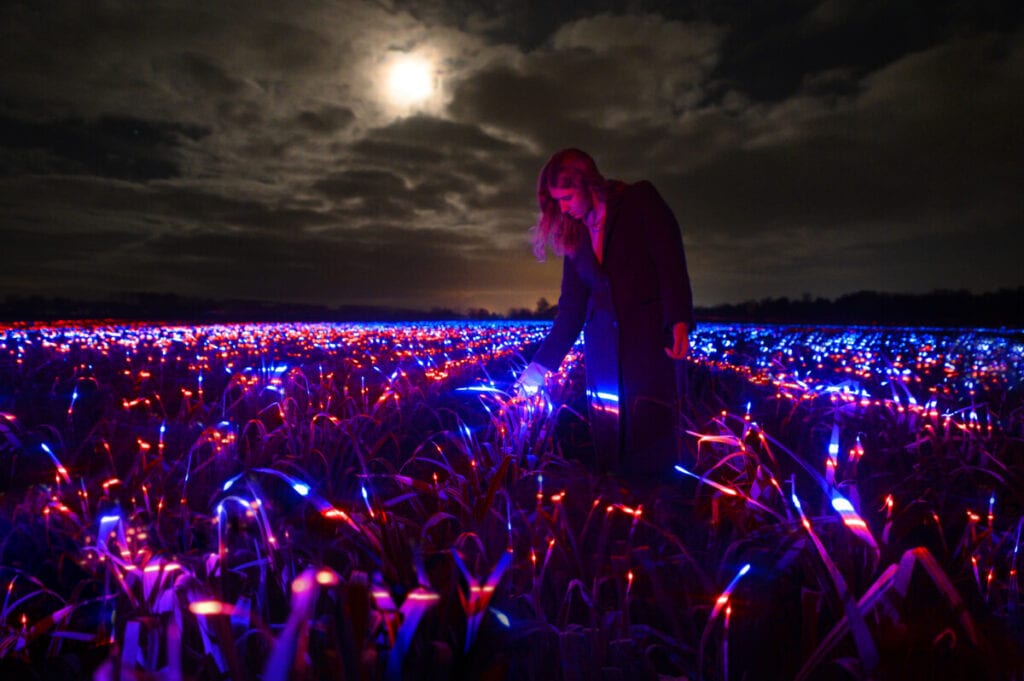
Love those dreamy utopian cities and landscapes from movies and novels? That’s what Studio Roosegaarde does in real life. Its aim is to spark our imagination of a better world through artworks which connect people and technology. Their projects not only improve urban environments but also help us fight climate change.
Dan Roosegaarde — artist, innovator, and the mind behind this inspiring social design lab — believes that the way to mobilize people is not by numbers and facts, but by triggering their imagination and creativity. No wonder this creative studio found their home in a place called The Dream Factory!
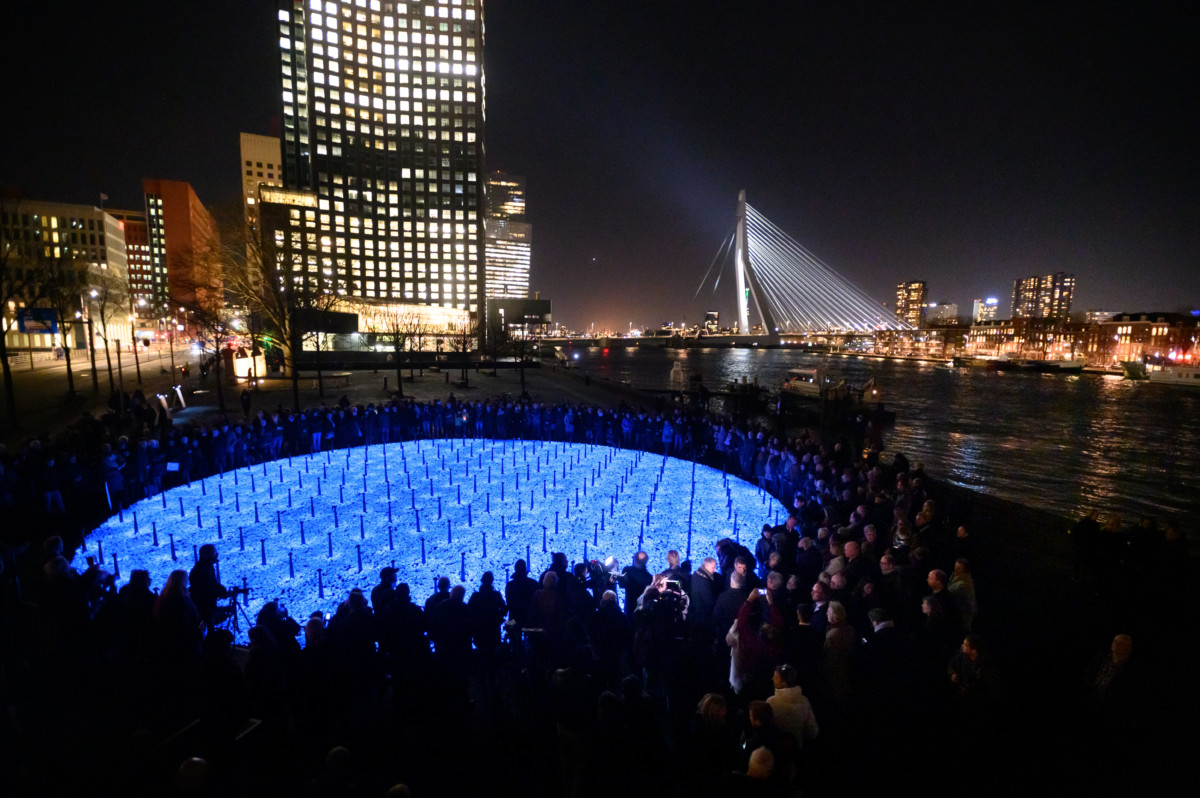
Their portfolio, which follows the ideals of beauty, as well as clean air, water and energy, includes stuff that is beyond the imagination. Think the largest outdoor air purifier, bicycle path that glows at night inspired by Van Gogh’s Starry Night, the famous Afsluitdijk, or their latest addition — GROW.
These super inspiring initiatives prove that a world free of overflowing landfills is not a utopia. And this is just a glimpse of all the gems and revolutionary ideas that Rotterdam has to offer!
READ MORE: 20 best and free things to do in Rotterdam in 2021
What do you think? Which of these initiatives inspired you the most? Tell us in the comments below!
Feature Image: Sophie de Vos/BlueCity